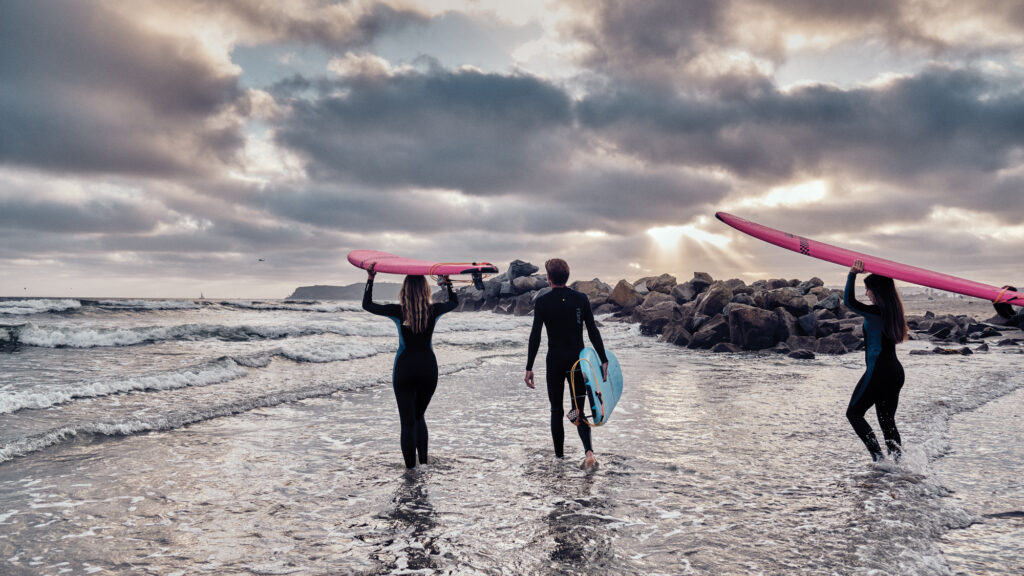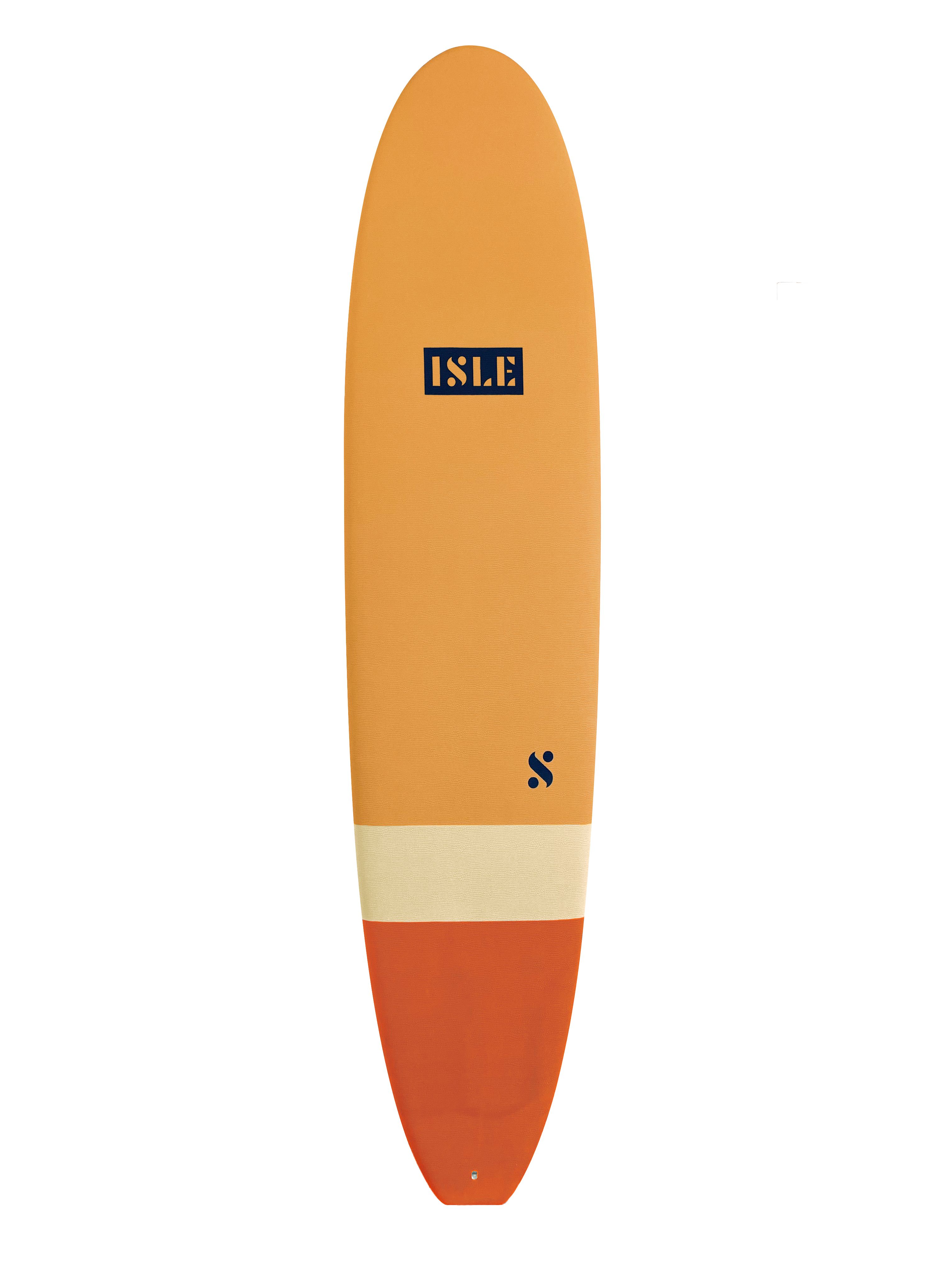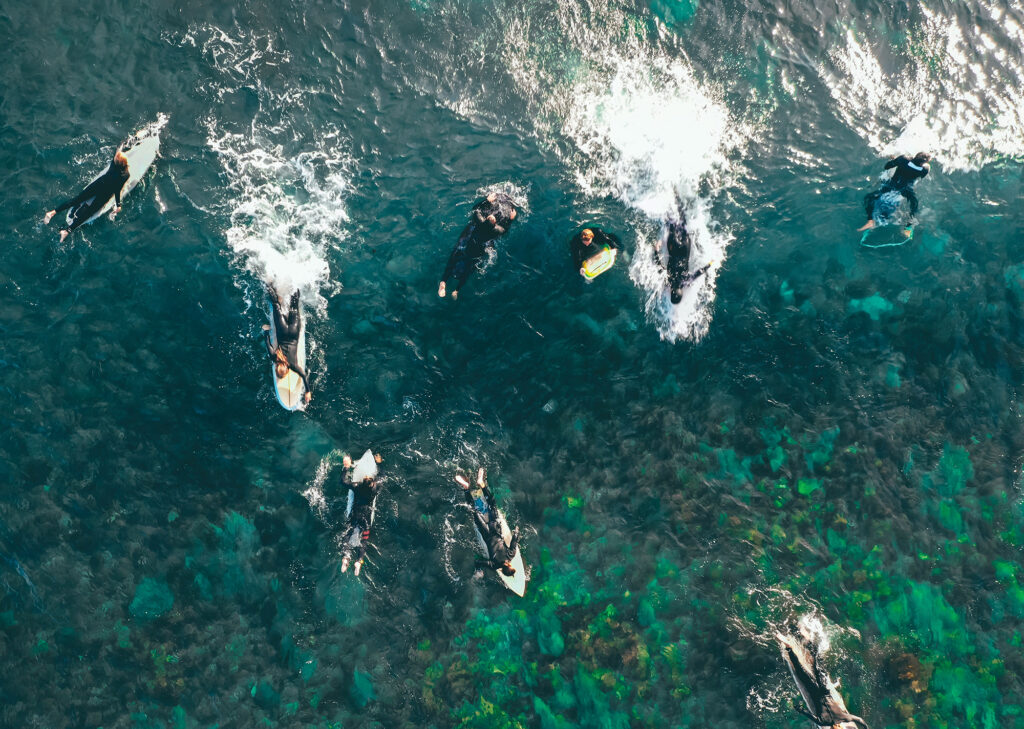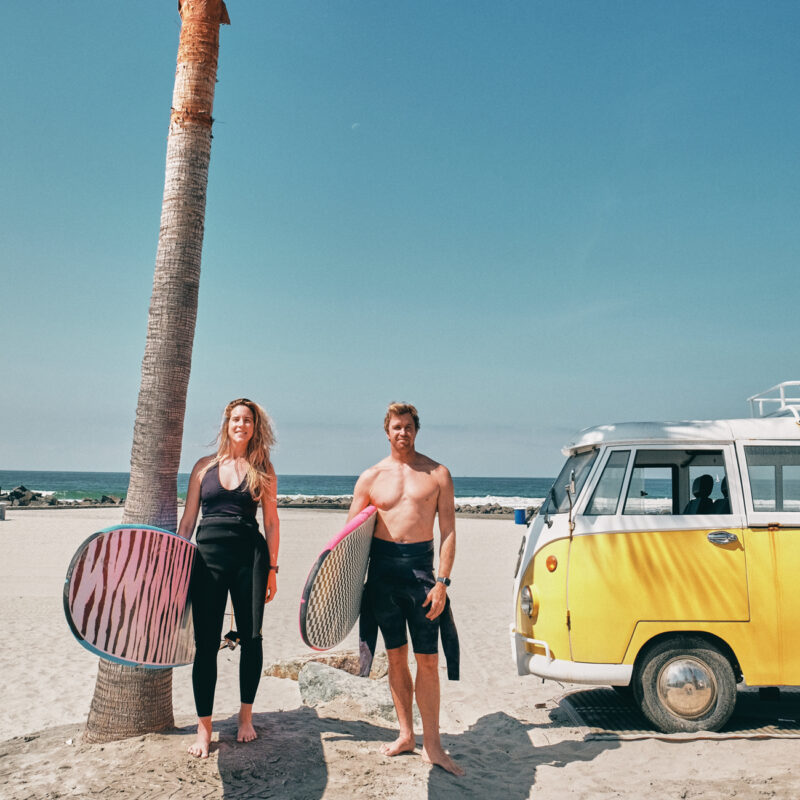
7 Things You Need to Know Before Starting to Surf
I learned the hard way so you don’t have to.

Thomas J. Story
Though the pros like San Clemente gold medalist Caroline Marks make it look easy, surfing is a really, really tough sport to learn. (Especially if you’re doing it at nearly 40, like me.) From mastering your pop-up to understanding the etiquette of the lineup, there’s a whole lot to take in. Although there’s truly nothing as important as spending time in the water, there are some things that will make the process of going from a complete kook to a proficient beginner less of a chore. Here are some tips to help make progress more quickly on your surf journey.

Thomas J. Story
1. Hire a Pro
There’s nothing worse than learning bad habits and engraining them early on. A good teacher will give you tips on everything from a proper pop-up to paddle technique, building the foundation of your surfing from the ground up. Taking lessons with someone like the team at Jamie O’Brien’s surf school (pictured at the top of this article) or Tropicsurf is well worth the investment. It’s worth noting, though, that you should be consistent in getting back out there over and over again as soon as possible after your guided sessions. Trust me, too much time between will leave you like you’re starting from ground zero.
2. Go Long
It’s totally natural to be tempted to grab a sleek little shredder of a shortboard. But even if your goal is to end up carving like Carissa Moore, the longer and more buoyant your board is, the better. (Most experts say to start with 9′ at the minimum.) The goal when you’re starting out is to catch as many waves as you can, building up your confidence. And that’s a whole lot easier on a giant boat of a board. There are stylish versions out there too, like the Catch Surf Logs or the Isle Coronado.

Courtesy of ISLE
3. Trust the Locals
There’s a whole lot more than what meets the eye going on underwater, and going with a local can really help. True, folks can get territorial, but if you’ve got a friend or a coach to teach you about where the channels, reef, and rips might be, you’ll be in a lot better shape. Don’t know anyone? Spend some time just watching on the shore before paddling out.
4. Cross Train
This is a big one. The ocean is powerful and deserves to be respected. Becoming a good waterperson is about reading waves, but also having great lung capacity, swimming ability, and core strength. Surfers have six packs for a reason! Yoga, weight training, and lap swimming can really help with your pop-up and paddle out.

Drew Dau/Unsplash
5. Join the Club
If you’re lucky enough to live in a coastal area, look for surf groups to join. Here in SoCal, groups like Après Surf Club and L.A. Surf Crew cater to every level, but once you progress there’s no shortage of more advanced, competitive clubs you can join. There’s something very comforting about getting out there with a group of kind, like-minded folks that are also learning. Having a set time and place to meet up helps with accountability, too. Run clubs shouldn’t get to have all the fun, after all!
6. Give Back
It’s so important that we take good care of the ocean that we revel in, especially since so much of the gear that surf requires isn’t exactly eco-friendly. (I love these non-neoprene wetsuits from Patagonia.) Look up local beach cleanups in your area like those with Heal the Bay and Surfrider. Or, at the very least, make the commitment to pick up a couple pieces of trash each time you head back to the parking lot.

Thomas J. Story
7. Have Fun
It’s easy to get wrapped up in the process, but don’t forget that surfing should be fun. That doesn’t mean to not take it seriously; it is an Olympic sport after all. But ultimately it’s about being one with nature and getting out there in the water with your friends. Smile a little, laugh at your mistakes, and catch the stoke.
We only recommend things we love. If you buy something through our site, we might earn a commission.
